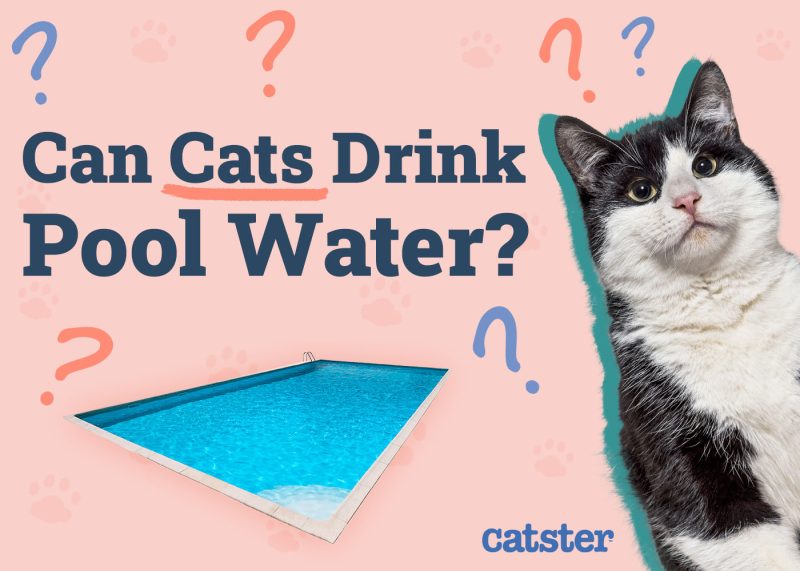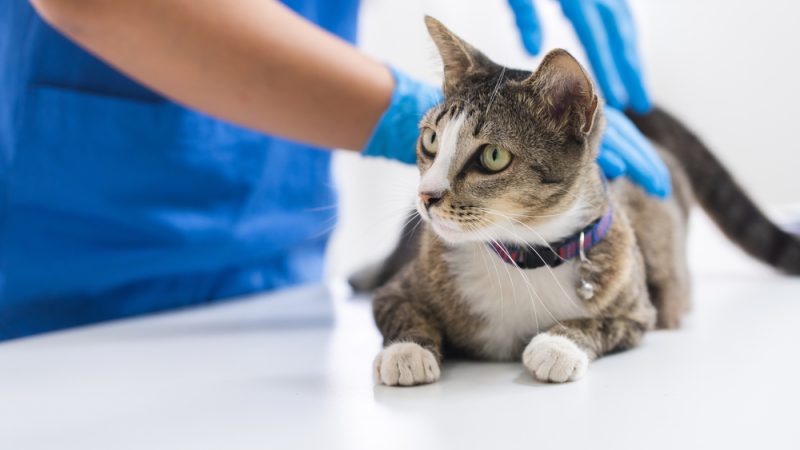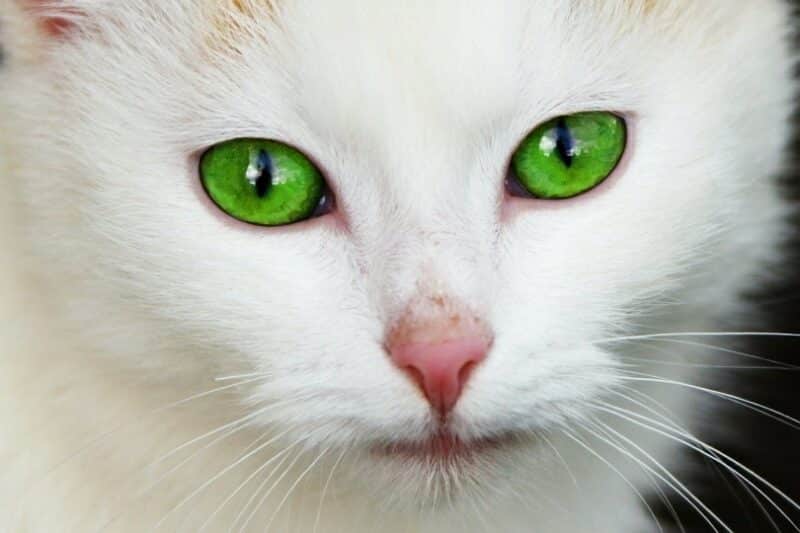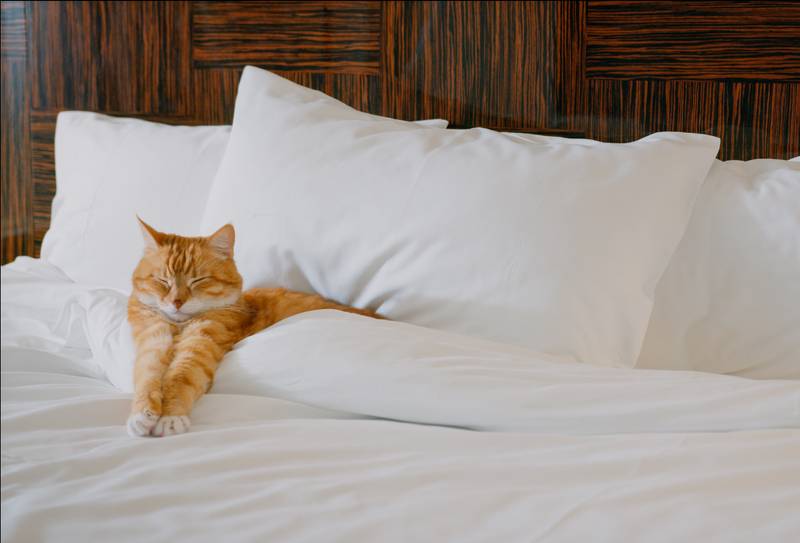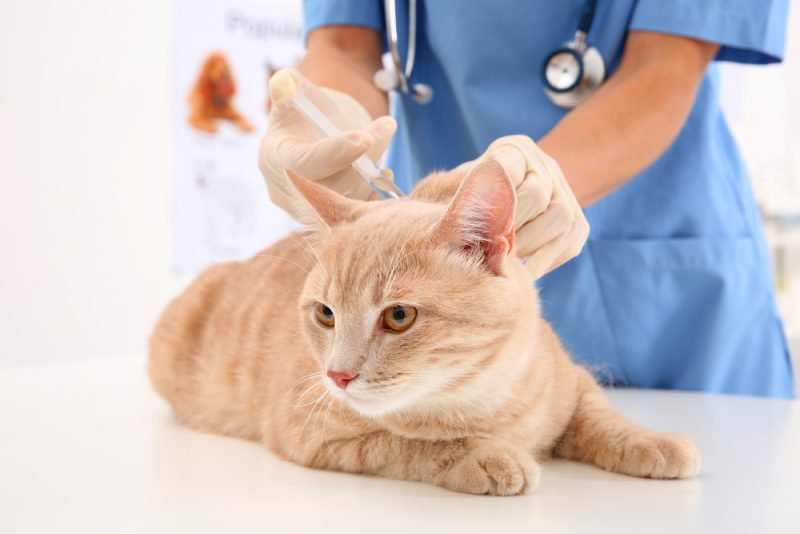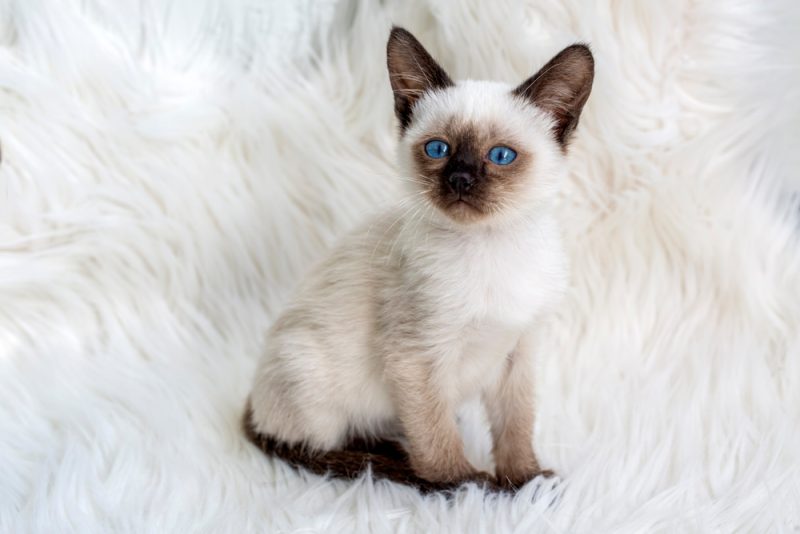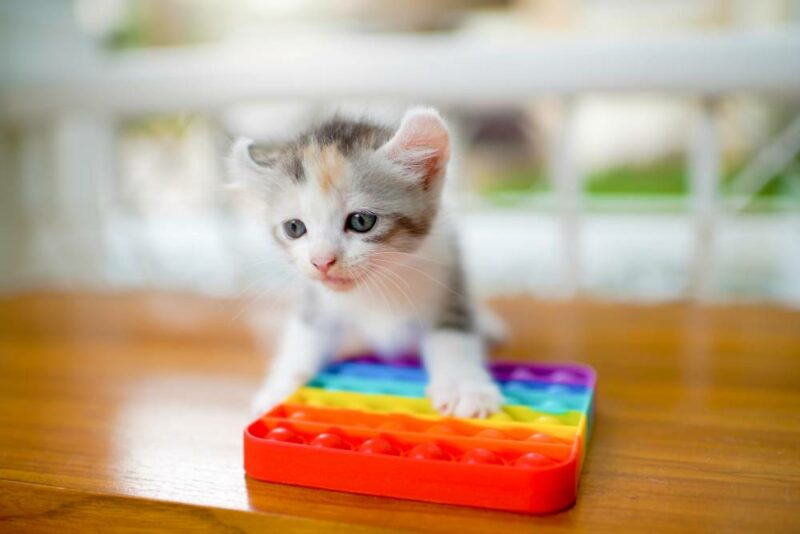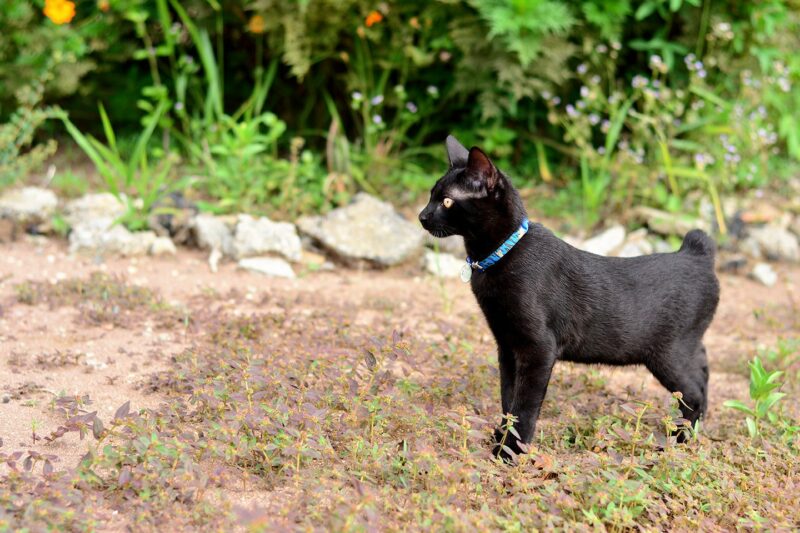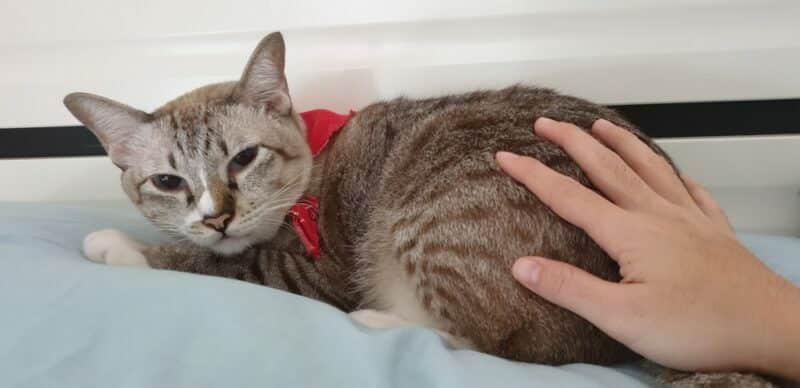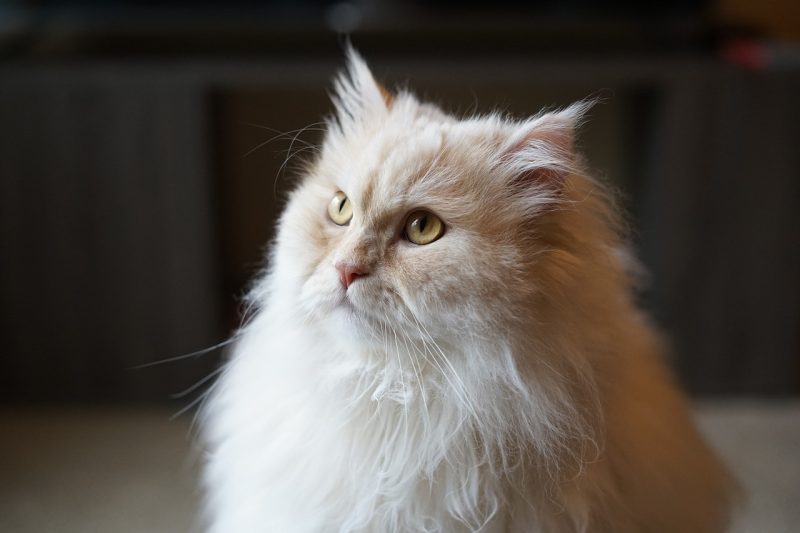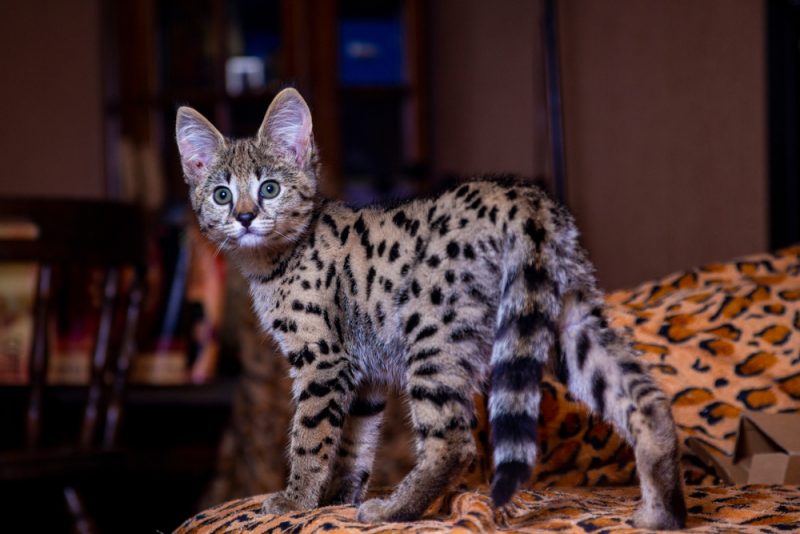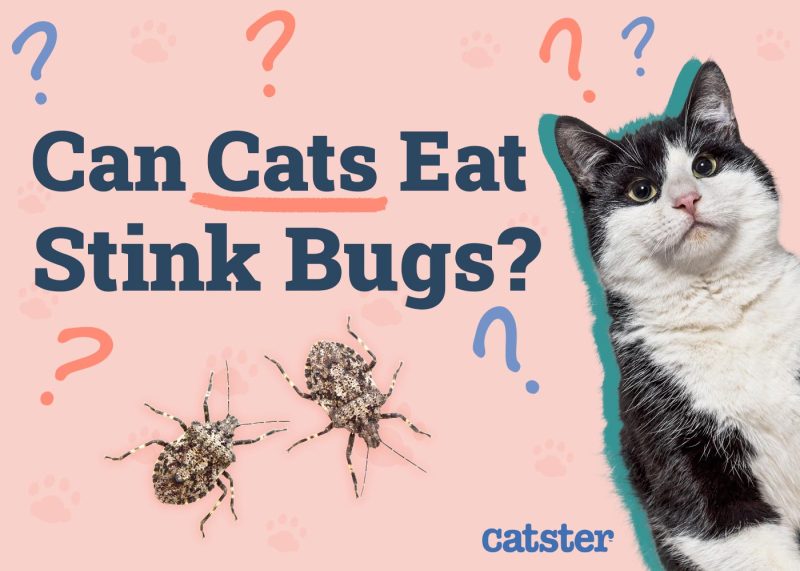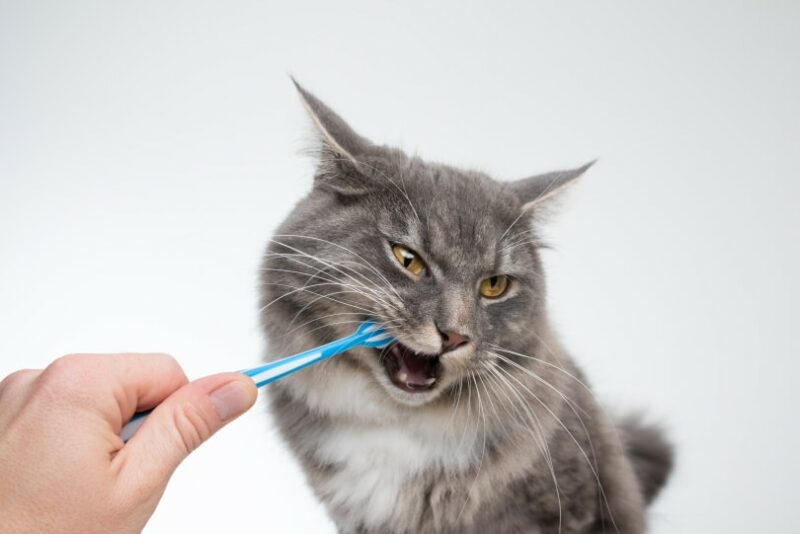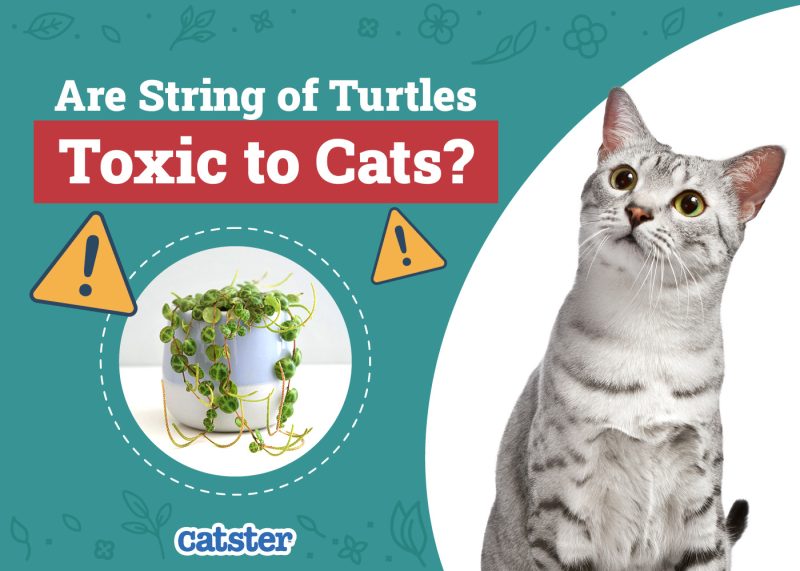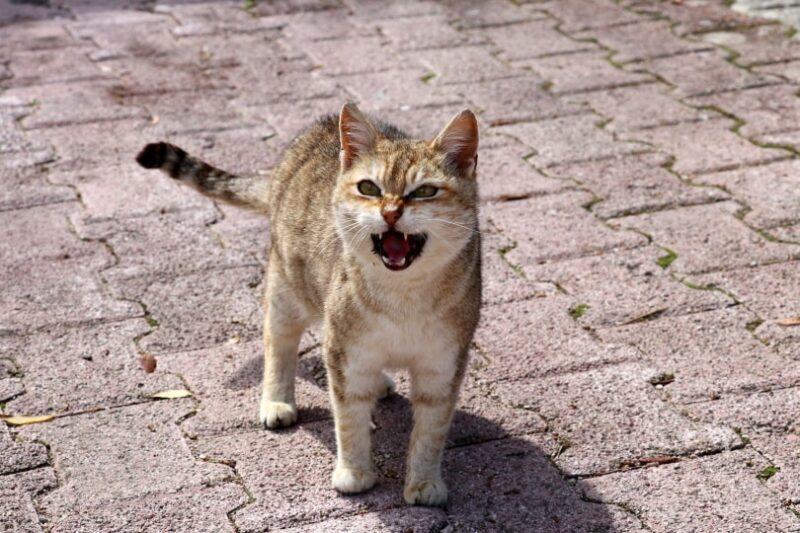In this article
Some cats love drinking water out of unusual objects, bowls, or containers and will continue to do so regardless of whether their water bowl is full of fresh, clean water or not. It’s not unusual to find cats drinking out of the fish tank, bird bath, sink, or even a toilet. Some cats will even go as far as drinking out of the pool. Although a cat should be fine if it samples a bit of saltwater or chlorinated pool water, this behavior shouldn’t be encouraged.
Drinking a small amount of saltwater or chlorinated pool water every day won’t be fatal for your cat, but it can make them sick, so it’s better for them if they can avoid it. When it comes to pool safety, the main area of concern is your cat falling in and drowning, so take measures to discourage your cat from hanging out around your pool.

What Are the Risks of Cats Drinking from a Saltwater Pool?
Unlike people, a cat’s kidneys can filter out the salt in saltwater, and their body will become hydrated from the water. Stray cats that don’t have access to clean, fresh water at all times may only be surviving by drinking from your saltwater pool. Saltwater pools are safer to drink from than the ocean because they only have 1/10th of the salt in comparison. However, just because they can drink from saltwater pools and get away with it doesn’t mean they should.
If you’re able to, try to leave fresh water out for the stray cats so that they have something to drink other than saltwater. Drinking too much saltwater or drinking it too frequently may lead to dehydration over time because a higher amount of salt intake will lead to an increase in thirst and urination.
Further organ damage may occur in cats with heart or kidney issues as sodium pushes up their blood pressure. It also puts a lot of strain on the kidneys. In these cases, salt water, as well as food with high salt content, should be avoided altogether, and a specific diet from the vet should be given to the cat instead.
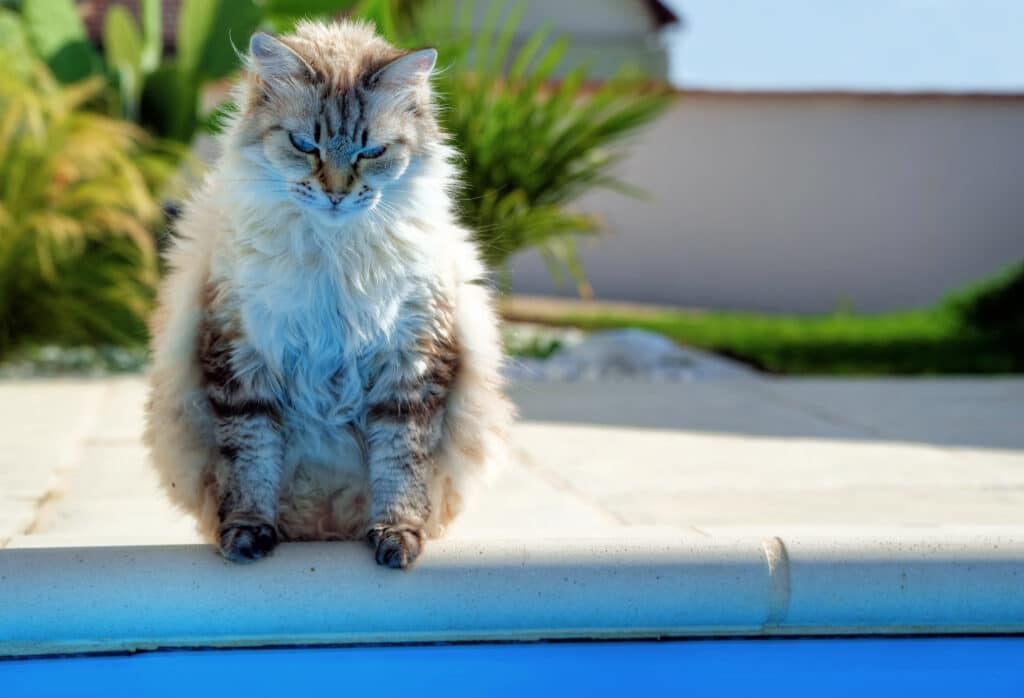
What Are the Risks of Cats Drinking from a Chlorinated Pool?
Chlorine is added to pools to kill algae and bacteria from growing in them. Cats shouldn’t drink anything with chemicals in it, but thankfully, pools that are well-looked-after usually have low concentrations of chlorine that shouldn’t harm your cat if they drink from it. If your cat drinks quite a bit, they may develop gastrointestinal upset with symptoms such as bloating, vomiting, diarrhea, and abdominal pain.
Consulting a veterinarian is recommended for the best course of action.
If you need to speak with a vet but can't get to one, head over to PangoVet. It's an online service where you can talk to a vet online and get the advice you need for your pet — all at an affordable price!

Keep your cat away from the pool if you have recently “shocked” it, as the chlorine level will be higher. Although your cat isn’t likely to experience serious side effects from drinking chlorinated pool water, fresh, clean water is a much safer option for your cat. Leave several water bowls around your home so that your cat has easy access to them and is less interested in the water in the pool.
How to Keep Your Cat Safe Around the Pool
If you have a cat who loves to drink pool water or a cat breed that loves to swim, you may find them around the pool more than you’d like. Swimming in the pool is great exercise, and a mouthful or two of the water shouldn’t do any harm. However, things can go from bad to worse when your cat is left by the pool alone.
- Keep a well-fitting cover on your pool whenever you’re not swimming, ensuring there are no gaps for cats (or other small critters) to crawl through.
- Never leave your cat unsupervised by the pool.
- Introduce your cat to the water and encourage them to swim without panic.
- Put in the correct dosage of chlorine to keep the levels safe in case your cat tries to drink from the pool.
- Keep your cat indoors.
- Keep your cat’s water bowl in a separate area from their food bowl—cats will often avoid a water source that is too close to their food.
- Place water bowls around your home and in a shaded area by your pool to encourage your cat to drink from their bowl instead of the pool.
- Learn how to perform CPR on cats.

Conclusion
If your cat loves to drink from anything other than their water bowl, you may occasionally find them drinking water from your pool. You don’t need to worry, as saltwater and chlorinated pools are generally safe for your cat to drink from every now and then. However, you should discourage it as too much of either can make your cat sick over time. There are many risks around the pool, so keep your cat safe by placing a cover on top of it when you’re not around to supervise.
Featured Image Credit: Halfpoint, Shutterstock
